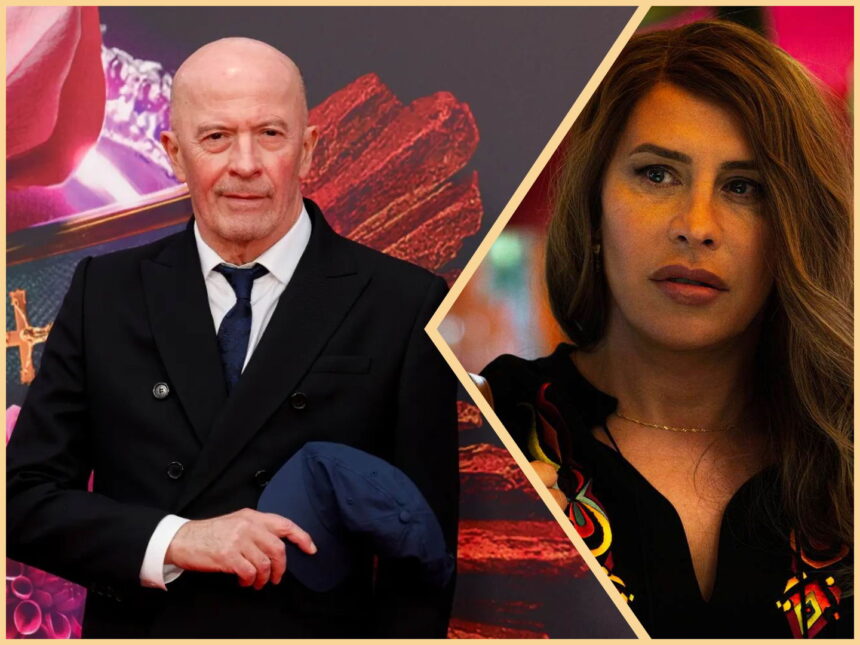Hollywood has always been a theater of contradictions—where art meets ego, ambition clashes with integrity, and the pursuit of accolades can sometimes overshadow the work itself. The latest drama unfolding behind the scenes of Emilia Perez is no exception. Director Jacques Audiard, known for his unflinching storytelling, finds himself embroiled in a storm not of his making but one he cannot ignore. At the center of this tempest is Karla Sofia Gascón, the film's breakout star whose Oscar campaign has imploded under the weight of resurfaced racist tweets. In an interview with Deadline, Audiard didn't mince words when asked about his embattled actress: “She is in a self-destructive approach that I can't interfere in.” But what does this say about the fragile ecosystem of awards season? And why does it feel like everyone loses when the curtain falls on such controversies?
Background and Key Details
Karla Sofia Gascón was poised to become a household name thanks to her electrifying performance in Emilia Perez , Jacques Audiard's ambitious musical crime drama. However, her meteoric rise came crashing down after old social media posts surfaced, revealing deeply offensive remarks. These revelations have fractured alliances within the cast and crew, including Zoe Saldana, who publicly distanced herself from Gascón. Even Netflix, which had heavily invested in promoting the film, has reportedly stopped supporting Gascón financially, refusing to cover her accommodations at upcoming award ceremonies—including the Oscars, where she remains nominated for Best Actress.
Audiard's frustration is palpable. He describes Gascón's actions as inexplicable, questioning why she would harm those closest to her, particularly the hardworking team behind Emilia Perez . Yet, Audiard isn't without his own controversies. His apology to Mexicans for perceived cultural insensitivity in Emilia Perez was followed by backlash over a decades-old video in which he referred to Spanish as the “language of the poor.” It's a tangled web of missteps and misunderstandings, leaving audiences to wonder if the film itself will be overshadowed by its off-screen chaos.
Analysis and Context
At first glance, this seems like yet another chapter in Hollywood's endless parade of scandals. But dig deeper, and you'll find something more troubling: the fragility of artistic achievement in the face of personal failings. Awards season often feels less about celebrating cinema and more about navigating a minefield of public relations crises. For every heartfelt acceptance speech, there are countless stories of careers derailed by ill-advised comments or long-forgotten indiscretions.
In many ways, Emilia Perez encapsulates this paradox. Audiard's film is a bold experiment—a genre-bending tale of love, betrayal, and redemption set against the backdrop of Mexico's drug cartels. Its technical brilliance and emotional depth deserve recognition. Yet, the controversy surrounding Gascón threatens to eclipse its merits, reducing it to a footnote in the annals of Oscar history.
This raises uncomfortable questions about accountability and forgiveness. Should artists be judged solely by their work, or do their personal lives inevitably color our perception? Critics like Roger Ebert might argue that great art transcends its creator's flaws, while others, like Sasha Stone, would likely emphasize the importance of ethical responsibility. Either way, the debate underscores the precarious balance between celebrating creativity and holding individuals accountable for their actions.
Conclusion
As the dust settles around Emilia Perez , one thing is clear: the road to cinematic glory is fraught with peril. Whether Karla Sofia Gascón's nomination will survive the storm remains to be seen, but the damage to her reputation—and perhaps to the film itself—is undeniable. What lessons can we draw from this saga? Perhaps that success in Hollywood demands not only talent but also vigilance, humility, and grace under pressure. Or maybe it's simply a reminder that, in the end, no one wins when the spectacle overshadows the substance.
Personal Impressions
Watching this unfold feels like witnessing a Greek tragedy play out in real-time. There's a certain poetic irony in seeing a film about redemption marred by the very human flaws it seeks to explore. As someone who cherishes cinema for its ability to reflect life's complexities, I'm torn. On one hand, I admire Audiard's courage in addressing these issues head-on; on the other, I lament the missed opportunity to let the film speak for itself. Ultimately, this episode serves as a cautionary tale about the perils of fame and the fleeting nature of validation.
Do you think controversies like these could reshape how Hollywood approaches awards campaigning? Or are they merely symptoms of a broken system that prioritizes spectacle over substance?












